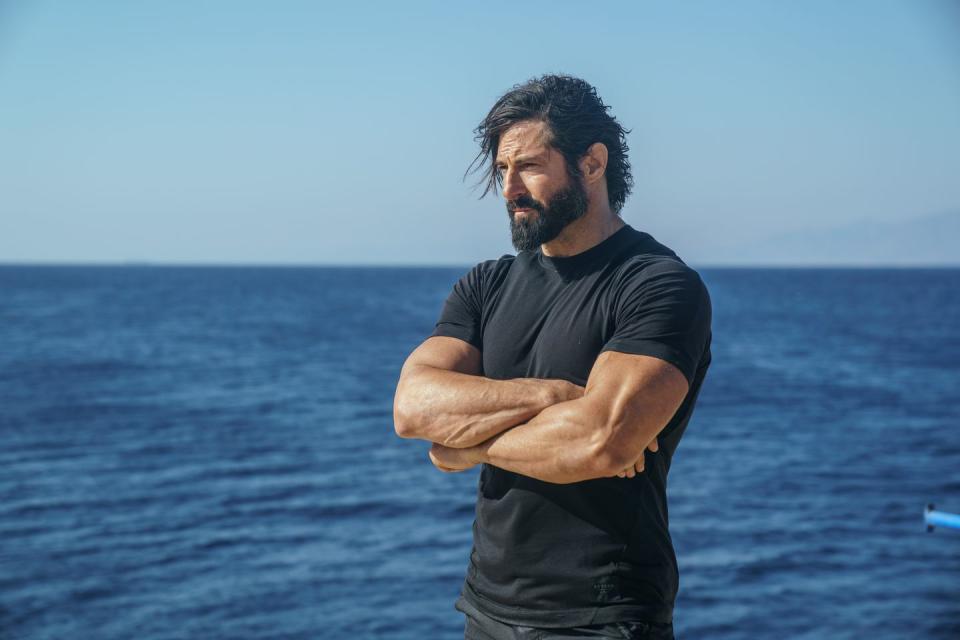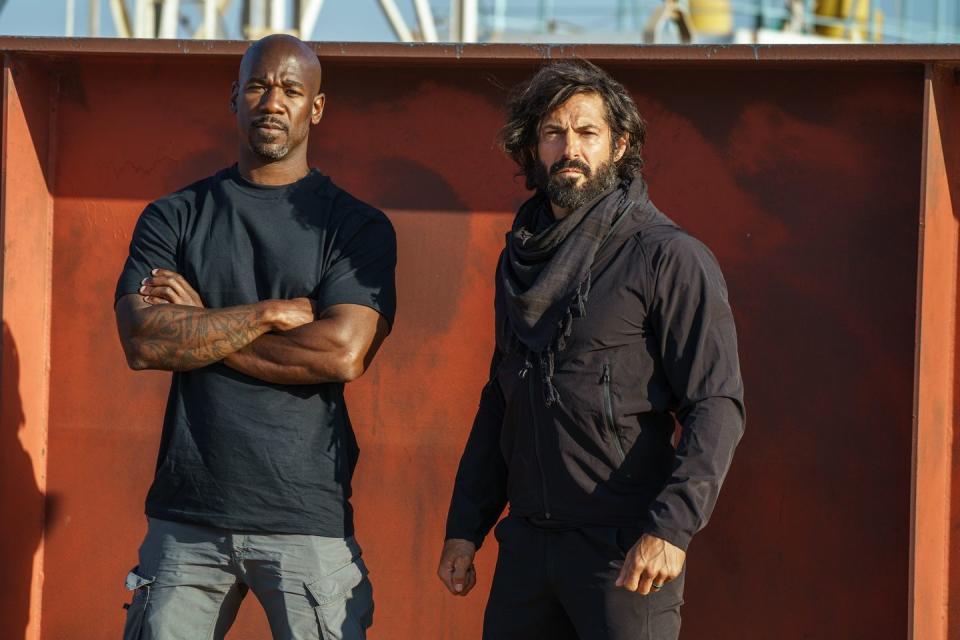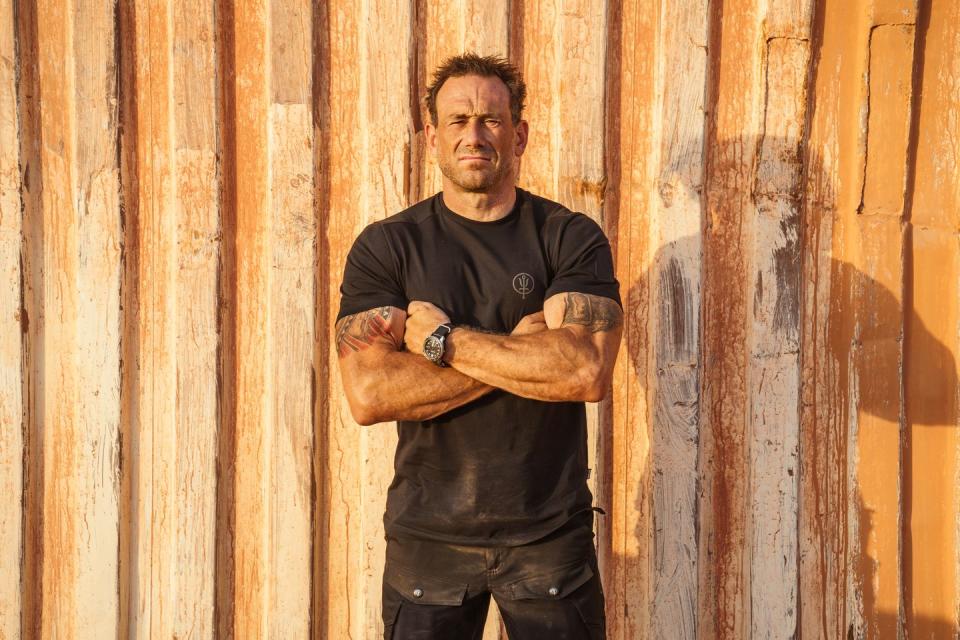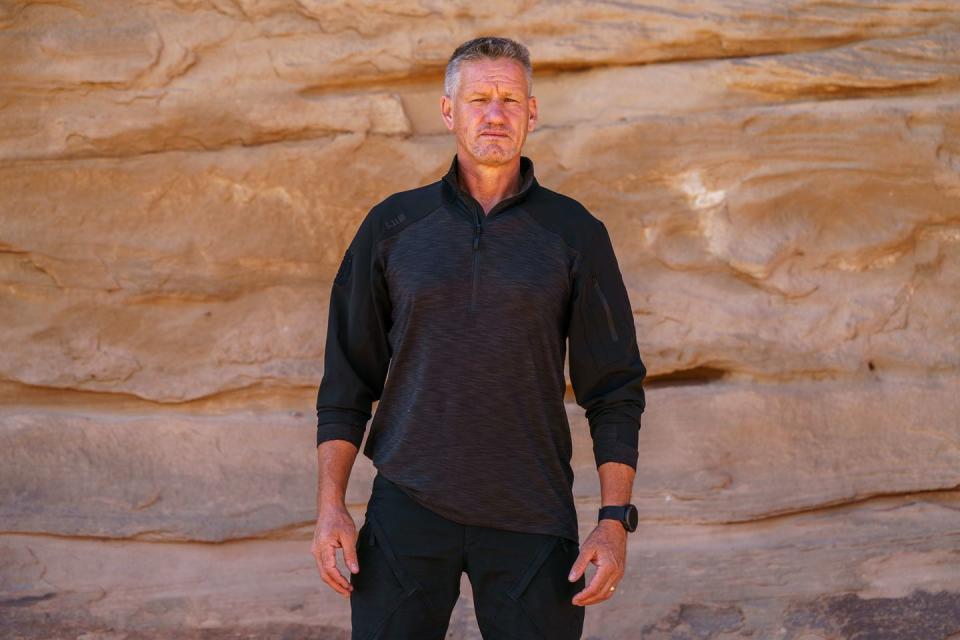Everything You Need to Know About SAS: Who Dares Wins' New Directing Staff
The seventh series of everyone’s favourite endurance test hit our screens with a bang this week, featuring epic challenges and some equally hardcore new faces. The latest incarnation of Channel 4’s SAS: Who Dares Wins boasts the show’s most gruelling course yet. Set in the unforgiving Jordanian desert, the show will push 20 new recruits to their physical and psychological limits, emulating the gruelling selection process of special forces including Britain's SAS and SBS, as well as the US Marine Corps and Navy SEALs.
Leading proceedings is a new elite ‘Brotherhood’ of directing staff (DS), all of them former special forces operators from the UK and, for the first time, the USA.
So, just who are the hardest men both sides of the Atlantic have to offer? Here’s everything you need to know about the new DS in SAS: Who Dares Wins.

Rudi Reyes, United States Marine Corps
Born on a Missouri Air Base while his US Marine father was fighting in Vietnam, Reyes has military blood in his veins. After his parents divorced, he grew up in a children’s home, where he learned to fight to protect his brother. A decorated martial artist and student of Buddhism, Reyes joined the United States Marine Corps at 26-years-old and went on to become an elite Recon Marine – a training so tough that 23 fellow recruits died during the training process. “I’m a scout sniper, I do amphibious raids, helicopter raids, vehicle insertion raids,mountain warfare,” he explains. “I’m a combat diver, I’m a paratrooper, I’m an explosives expert, desertsurvival, arctic survival,and then we go through SERE [survival, evasion, resistance, escape] school as well, to protect ourselves if we're caught behind enemy lines.”
Having served in both Afghanistan and Iraq and leading over 50 patrols behind enemy lines, Reyes left the Marines and focused his skills on conservation - training wildlife reserve rangers in Africa on anti-poaching tactics and founding Force Blue, a Veteran not-for-profit focused on marine conversation.
Don’t let his sensitive side fool you. “Out of respect for Recon, and for SAS, and for SBS, out of respect for SEALS, I will be a hard-ass” he explains, adding that he’s “an expert at using tough love to make superior fighters and warriors”.
His tip for who will survive the challenge? “The key is indomitable spirit. The body will break, and that goes away and is reformed. The mind will play tricks too. The body lies and the mind lies. But if you’ve got an indomitable spirit, you will make it”. Time will tell.

Remi Adeleke, US Navy SEAL
Adeleke was born into riches in Nigeria, but following the death of his father and the unjust seizing of his family’s wealth by the Nigerian Government, Remi and his family relocated to Bronx, New York in 1987. After years of making “regrettable decisions”, he joined the Navy in 2002 and later joined the Navy SEALs. Although, Adeleke nearly didn’t make it to the military. “I had two warrants out for my arrest – but the recruiter who was also from the Bronx, took a chance on me”, he explains. It took him two attempts to pass his SEAL training, almost dying during his first Hell Week.
After ending his naval career in 2016, Adeleke worked in film and television consulting, directing, writing, and acting, including the 2017 franchise film Transformers: The Last Knight. While he describes his role in SAS: WDW as “the one you do not want to cross”, Adekele’s story is one of redemption and never giving up.
“I think it’s a lesson for the recruits, you’re going to face obstacles on the course, you’re going to face obstacles in life, so what do you do when you face those obstacles? Do you quit? Or do you put in the extra hard work in to overcome your deficiencies and reach your goal?”. This year’s recruits are about to find out.

Jason “Foxy” Fox
Jason Fox is a former Royal Marine Commando and Special Forces Sergeant, serving with the Special Boat Service (SBS). During his military career, he planned and led operations including hostage rescue, counter-terrorism, counter-insurgency, maritime counter-terrorism, surveillance, bodyguarding and counter-narcotic missions.
After leaving the Special Forces, Fox moved into the TV and Film industry, initially using his experience to support production crews working in environmentally hostile areas, before making the 2018 series Meet the Drug Lords: Inside the Real Narcos. He has written two books and holds the current world record for rowing across the Atlantic in aid of the NSPCC.
Reflecting on his own training, Fox is open about where he struggled most. “My head. Dealing with my own demon that used to always criticise everything I did. Your head is 100 per cent the thing that plays games with you”.
How hard does he think this year’s series will be for the recruits? “The tasks are hard, the environment’s hard, the terrain is hard” he says, before adding “It is hard. It is very hard”. So… hard, then? We can’t wait to find out.

Mark “Billy” Billingham
Series regular Mark ‘Billy’ Billingham MBE joined the Special Air Service (SAS) in 1991 as a Mountain Troop specialist after over 12 years in the Parachute Regiment. He has led operations, training and hostage rescues all over the world and is certified at virtually every activity you can name, from evasive driving and jungle warfare to ski mountaineering and combat survival. He holds the Queen’s Commendation for Bravery and an MBE for his outstanding service as the SAS Ground Commander for the London 2005 attacks and for hostage rescues in Iraq.
Following his military career, Billingham became a bodyguard for some of the world’s most high-profile celebrities before turning his hand to fiction writing.
“Americans are all gung-ho and ‘let’s just go for it!’”, Billingham explains about the cultural differences within this year’s DS team. “The British approach is more hearts and minds, whereas theirs is more aggressive. We say we’re the brains and they’re the brawn! We put our skillsets together – it’s a good collaboration”. His top tip for facing any terrifying situation? “Get a grip of yourself, take a breath, and proceed with clarity”. We’ll remember that.
You Might Also Like

 Yahoo News
Yahoo News 
